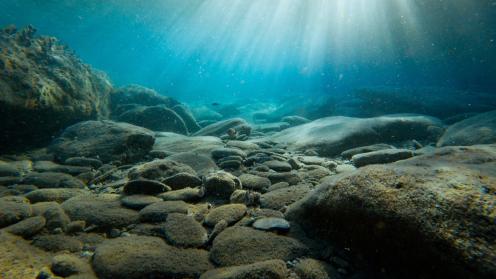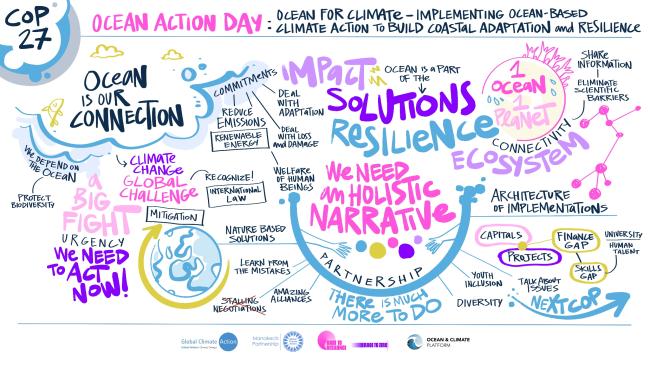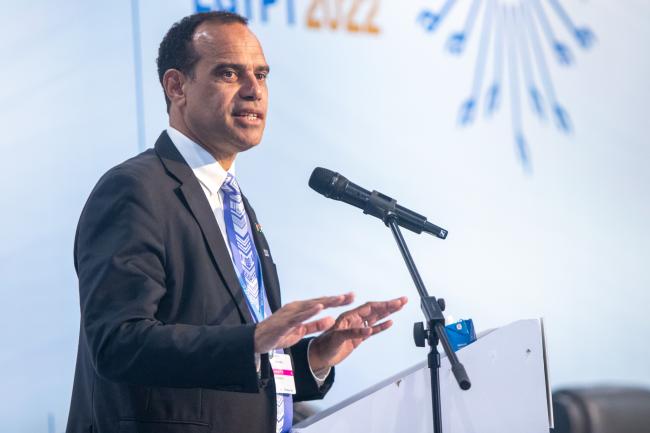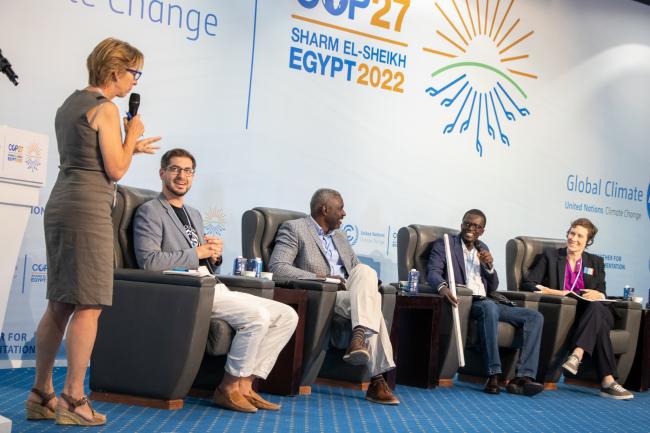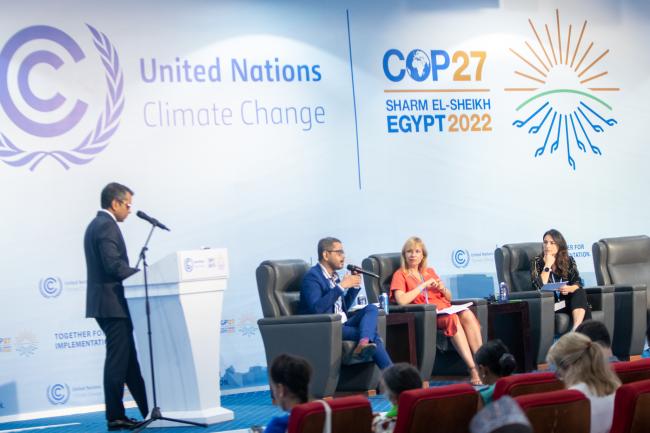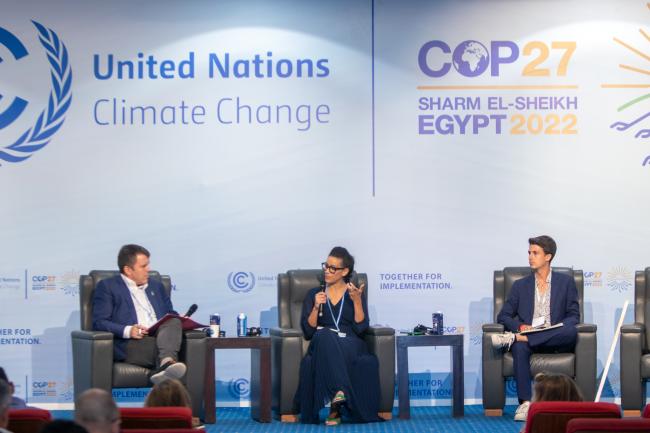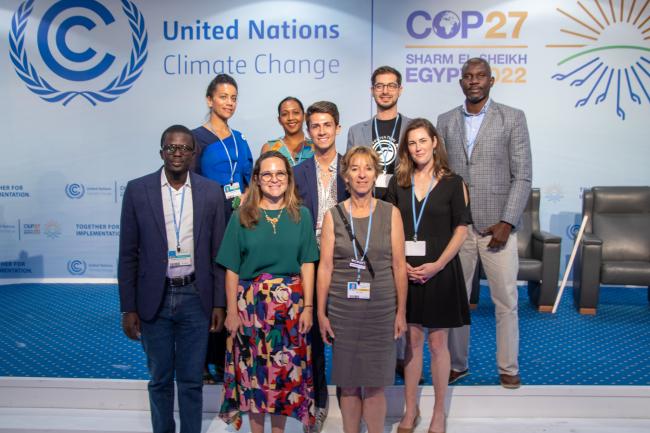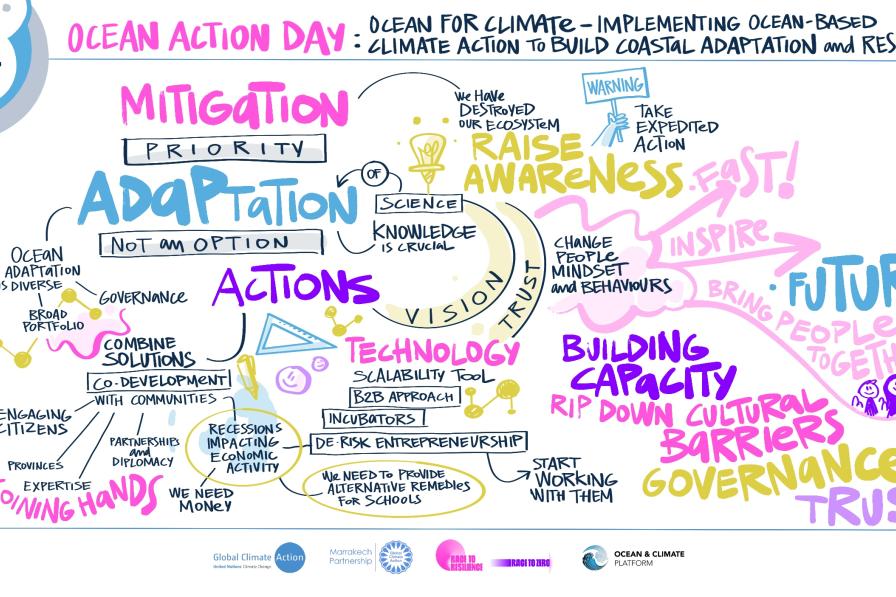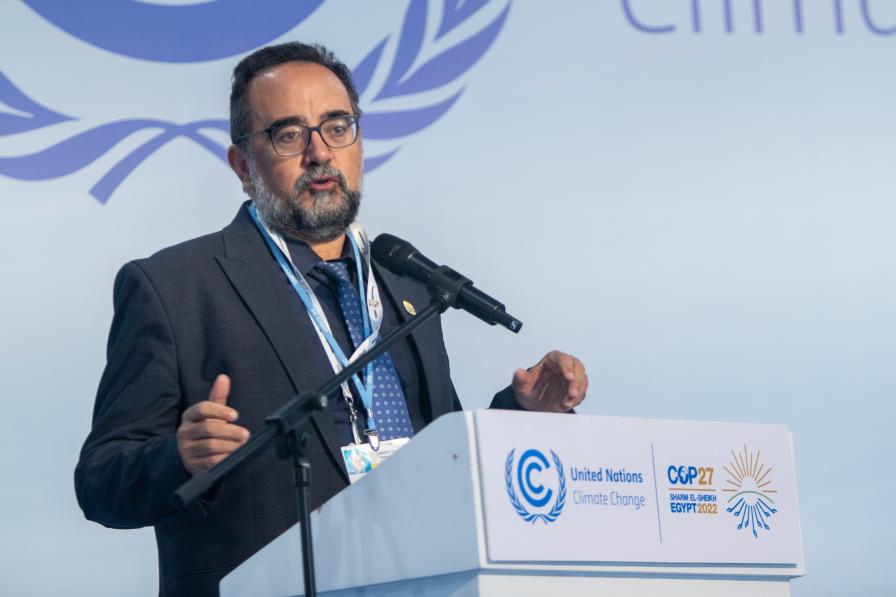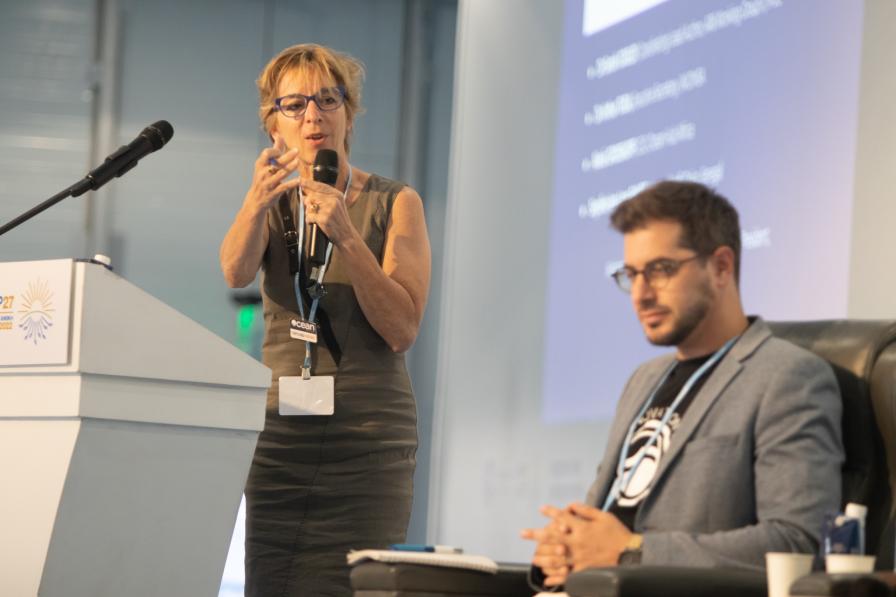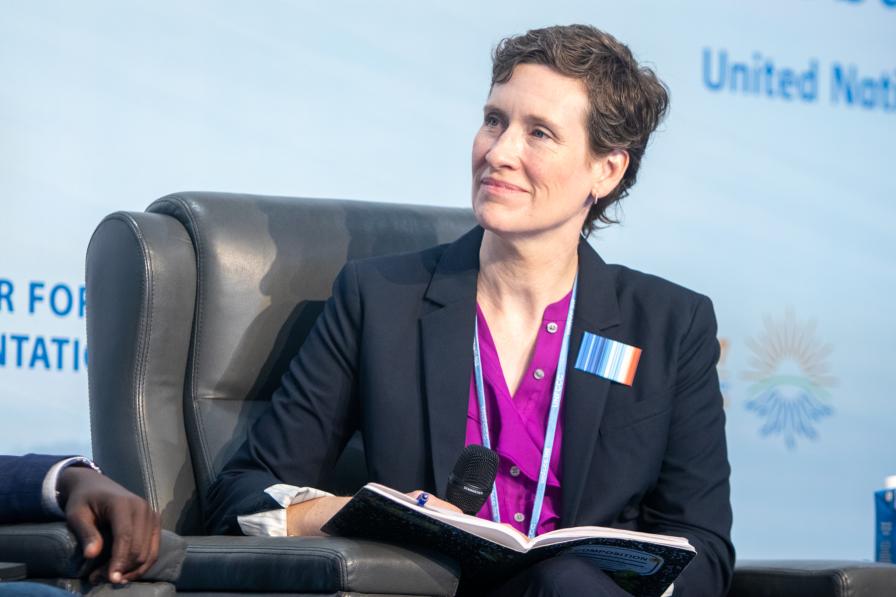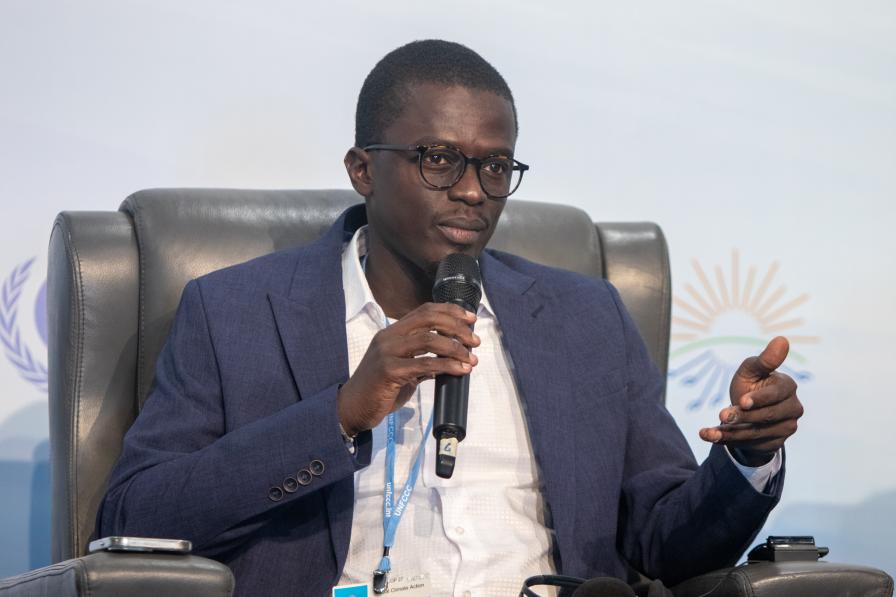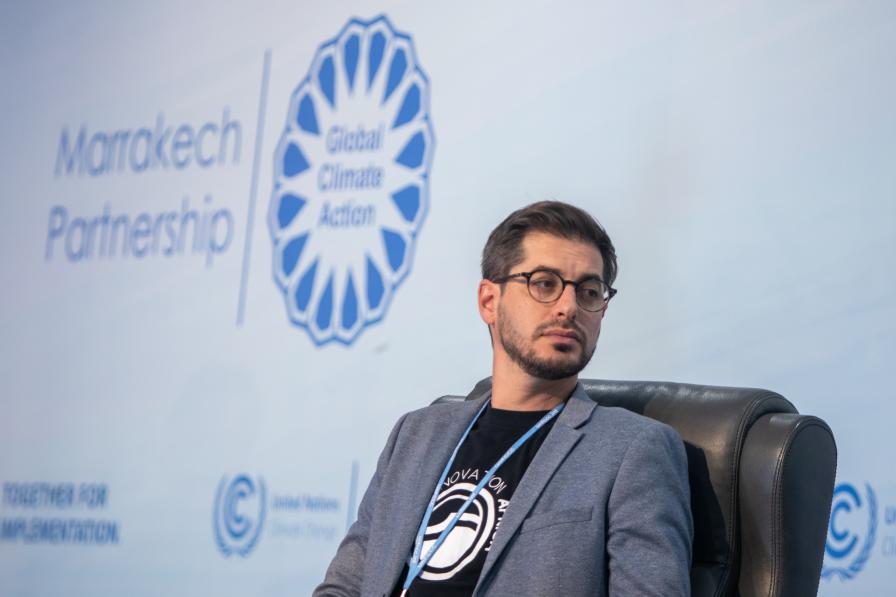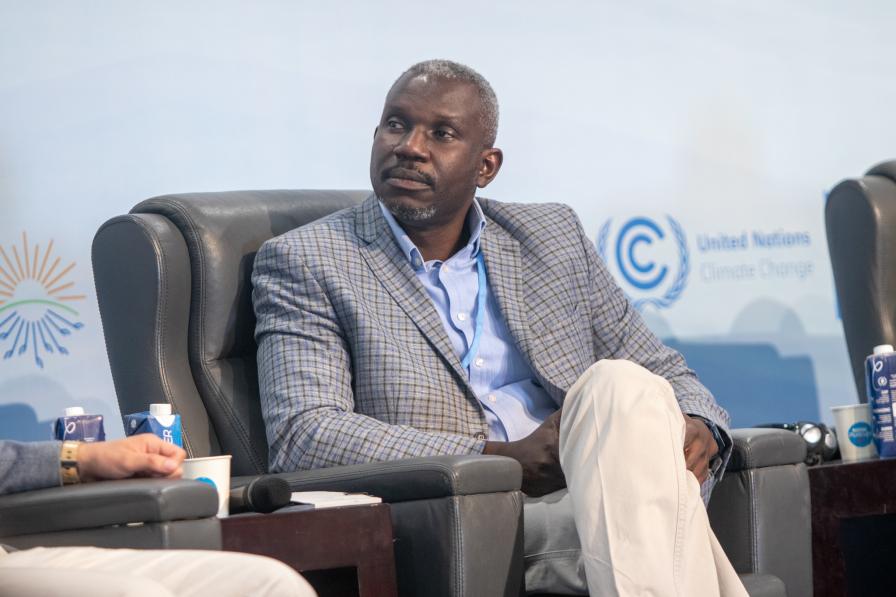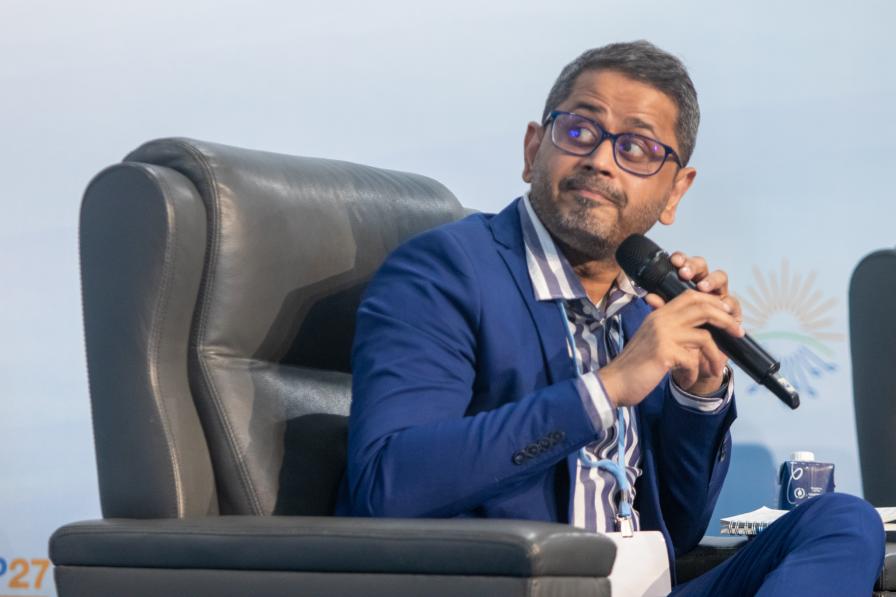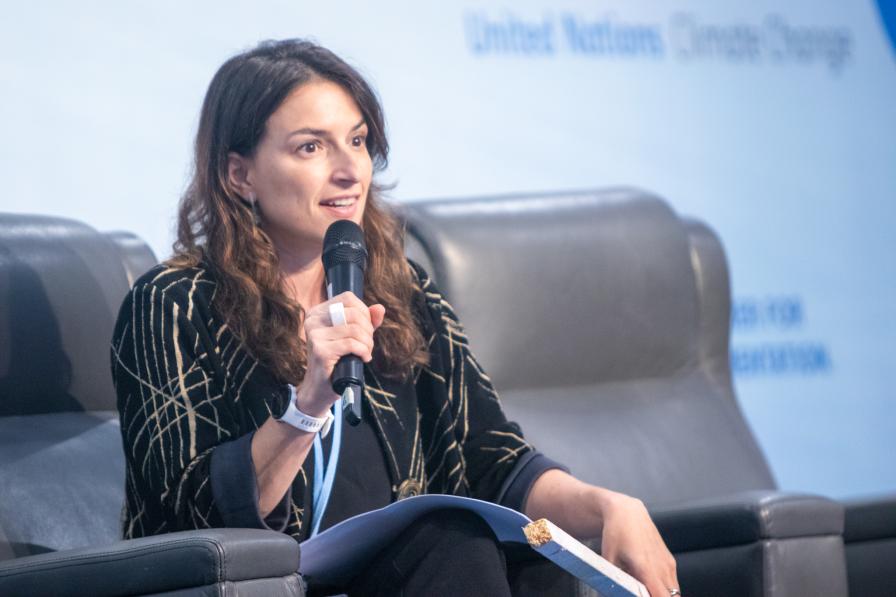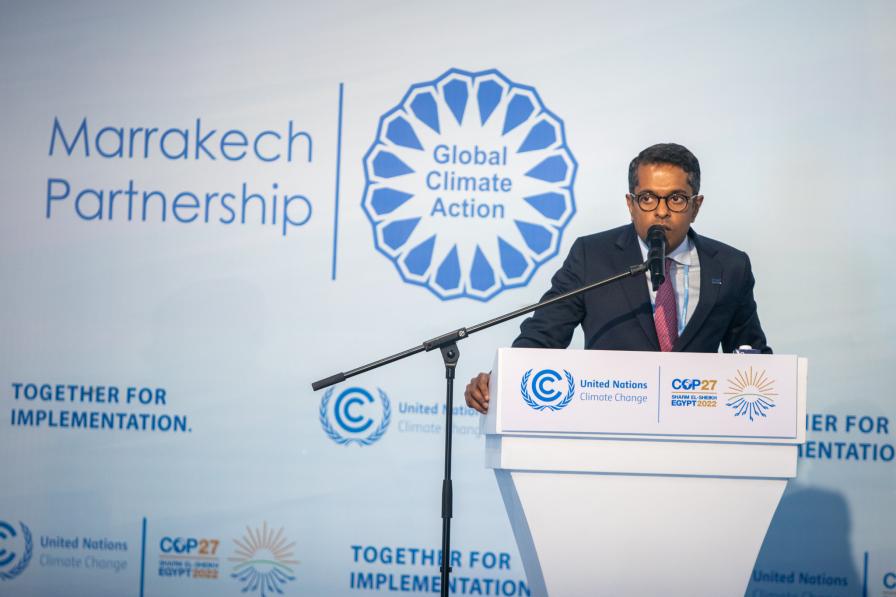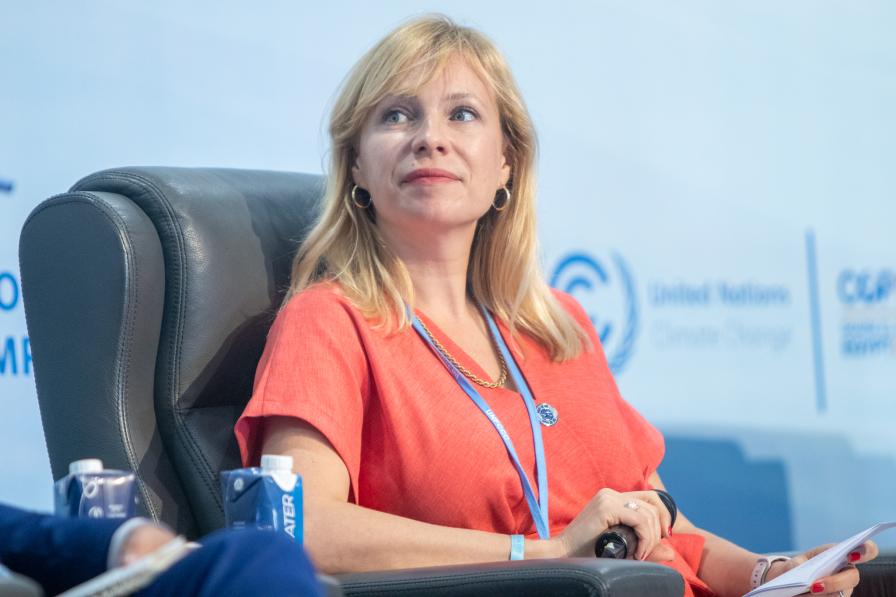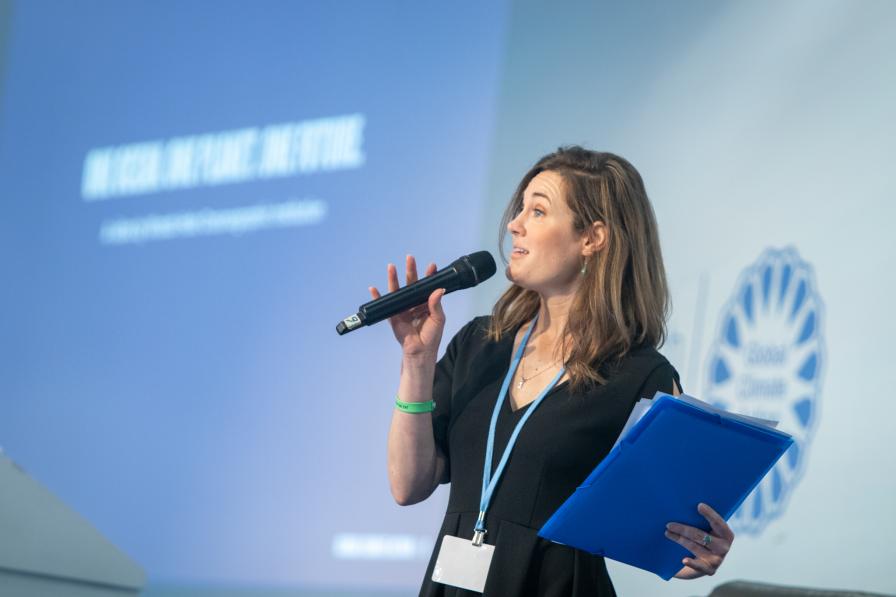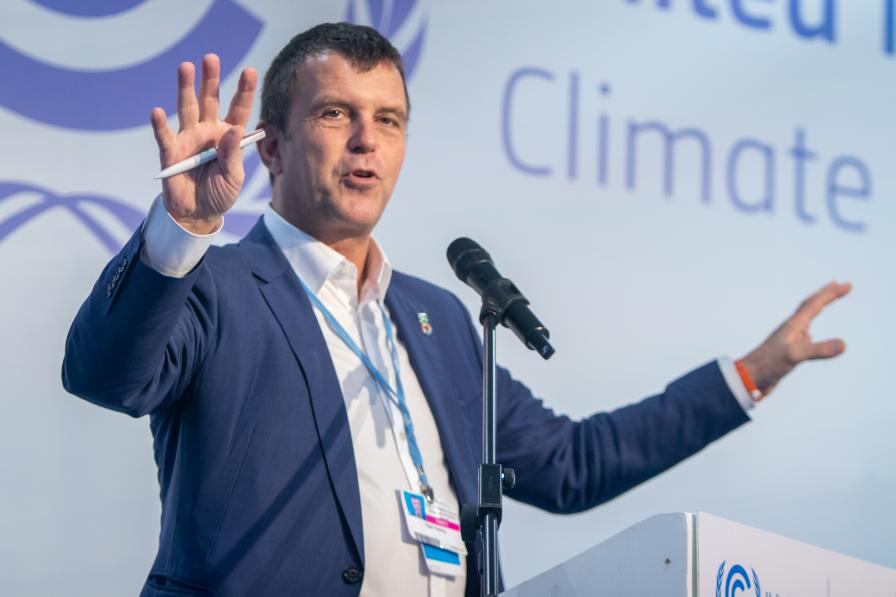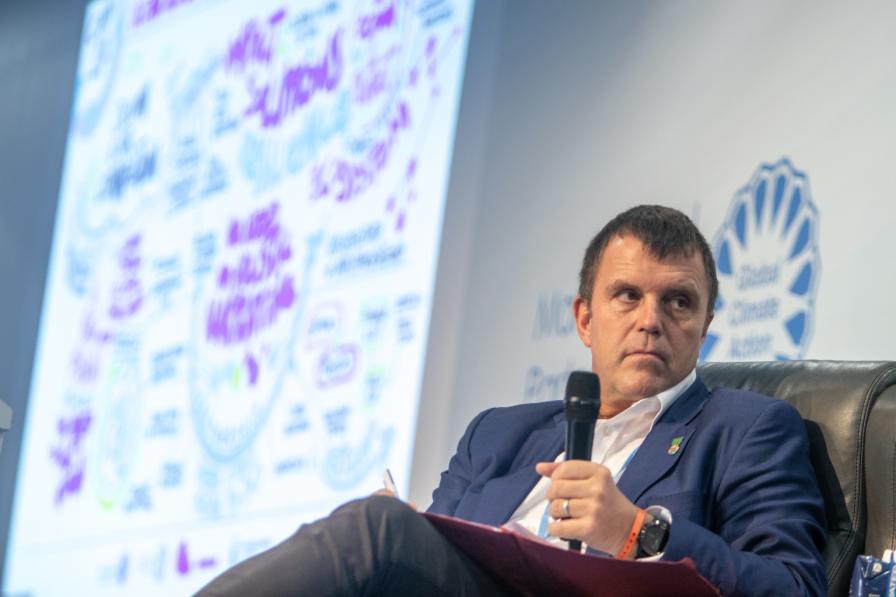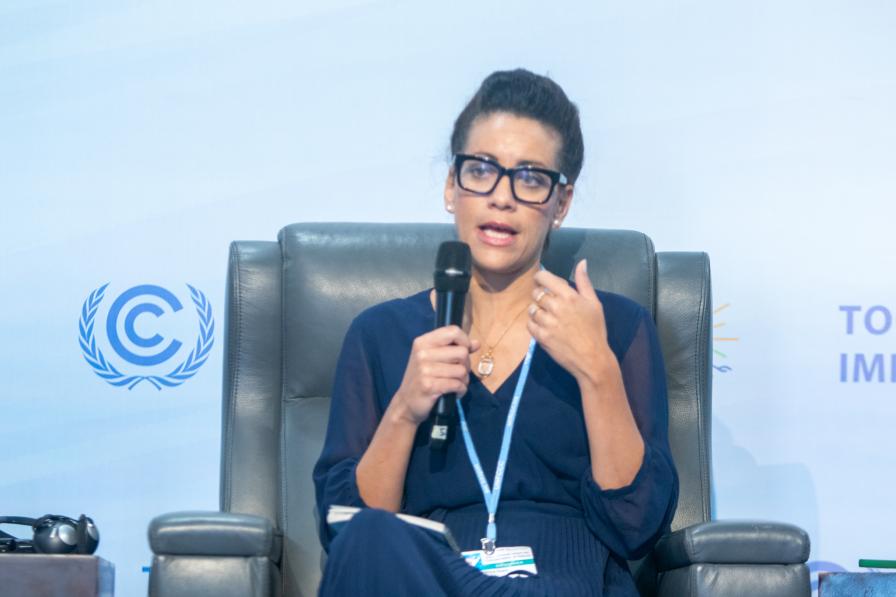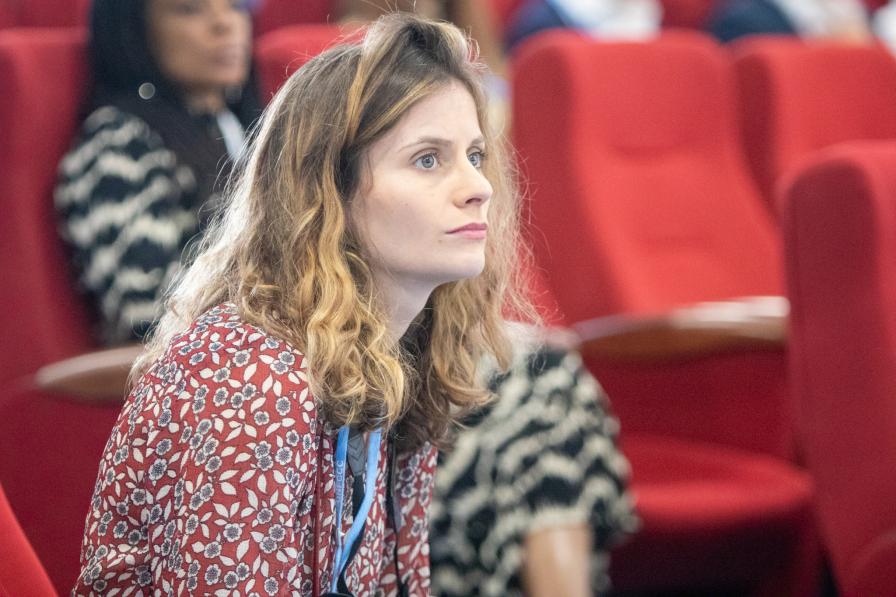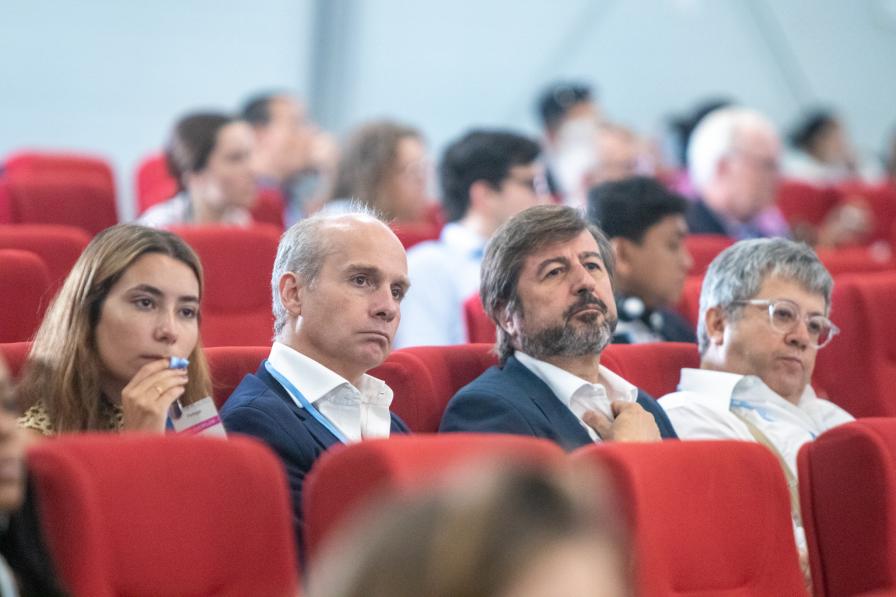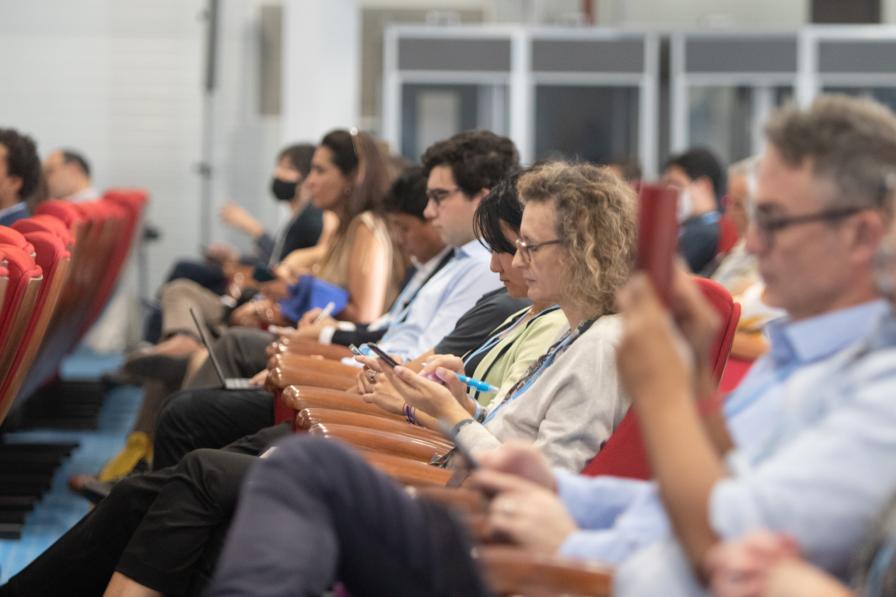About
With a specific focus on the African continent, speakers and panelists at this side event called for raised ambition, as Ocean and coastal solutions are scientifically proven and central to adaptation, resilience, and sustainable development, yet underfunded.
Ocean Action Day at COP 27 brought together representatives of governments, businesses, experts and practitioners to assess existing Ocean and climate action, and identify gaps that must be addressed. With a specific focus on the African continent, speakers and panelists called for raised ambition, as Ocean and coastal solutions are scientifically proven and central to adaptation, resilience, and sustainable development, yet underfunded.
In his keynote address, Ralph Regenvanu, Minister of Climate Change Adaptation, Meteorology and Geo-Hazards, Energy, Environment and Disaster Risk Management, Vanuatu, underscored that the Ocean is the world’s biggest carbon sink but that developed countries are not meeting their commitments under the Paris Agreement and not providing crucial financing. He emphasized that island nations are paying for loss and damage now and urged fighting against new efforts to mine sea beds.
Following the keynote, Tarek Temraz, Ministry of Environment, Egypt, emphasized that the Ocean connects us all and that knowledge exchange is crucial to saving it and preserving human wellbeing.
Sylvie Goyet, Fondation Prince Albert II de Monaco, moderated the first panel on scaling up coastal adaptation and finance. Sarah Cooley, Ocean Conservancy and IPCC lead author, emphasized diverse options that go beyond nature-based solutions and no single form that adaptation must take. Arthur Tuda, Western Indian Ocean Marine Science Association (WIOMSA), emphasized that scientific knowledge is key but that we need a new science of adaptation to help us understand what works.
Seydina Issa Laye Sambe, Mayor of Yoff, Dakar, Senegal, highlighted the climate-change fueled flooding that regularly affects his city, which causes loss of life and damages the local economy. He stressed that good governance and funding are key to adaptation. Alexis Grosskopf, OceanHub Africa, stressed that technology and innovation can help scale up solutions but that opportunities to do so are not equally distributed.
Panelists said that if they had a “magic wand” to solve Ocean problems they would wish for: increased mitigation that also would aid adaptation; an improved knowledge base; equitable trust building among stakeholders; and stronger regional diplomacy to exchange best practices.
The audience then heard from a second panel on financing coastal adaptation, moderated by Joywin Mathew, global law firm DLA Piper. Noting that 37% of the world's population lives within 100km of a coast, Mathew warned that Sustainable Development Goal (SDG) 14 (life below water) receives the least amount of long-term funding of any of the SDGs. Arghya Sinha Roy, Asian Development Bank (ADB), said an overhaul of the entire financial system, rather than a “transition and project-focused” approach, is required to meet adaptation needs. He added that the ADB’s Healthy Oceans Action Plan, which finances technical assistance for Ocean health and marine economy projects, provided the basis of an exercise documenting the Bank’s blue financing.
Julia Manning, European Bank for Reconstruction and Development (EBRD), said that blue financing sits under green financing, and that the EBRD aims to reach over 50% of green financing by 2025. She noted the Bank adheres to the Sustainable Blue Economy Finance Principles, which consider the sustainable conservation and use of the Ocean, seas, and marine resources. Beatriz Granziera, The Nature Conservancy, described various projects under her organization’s Blue Bonds programme, which combines conservation financing with scientific expertise. She said that these solutions are scalable and replicable, but this requires more private and public partners.
In response to a question from Mathew on what one needs to do to scale up blue finance, Sinha Roy said finance must be informed by science, to better identify where it should go. Manning called for partnerships between governments, scientific groups, and financial actors. Granziera said “an important step is to connect what is happening in the pavilions here at the COP with the negotiations.”
Nigel Topping, COP 26 High-level Climate Champion, then moderated a session on key takeaways for the Ocean at COP 27. He called for “providers of capital” to connect with “originators of projects” to realize ideas emerging at COP 27. Minna Epps, Director, Global Marine and Polar Programme, International Union for Conservation of Nature, highlighted the need for targeted, nature-based solutions and Ocean action mandates that come with financing. Mark Haver, Sustainable Ocean Alliance, highlighted calls for a deep-sea mining ban and emphasized moving from talk to action, noting “there is a big question whether this COP is a crisis of commitment or a crisis of empathy.”
In closing remarks, Barkha Mossaë, African Union Commission, pointed to the Great Blue Wall initiative, which aims to create protected marine areas to counteract the effects of climate change and global warming. She also underlined several upcoming meetings where opportunities to push for improved Ocean governance exist, including the Convention on Biodiversity.
Organizers: The High-level Climate Champions, the Marrakesh Partnership for Global Climate Action, and the Ocean & Climate Platform.
Contact: Anaïs Deprez I outreach@ocean-climate.org
For more information: https://ocean-climate.org/
To receive free coverage of global environmental events delivered to your inbox, subscribe to the ENB Update newsletter.
All ENB photos are free to use with attribution. For photos from this side event, please use: Photo by IISD/ENB | Matthew TenBruggencate.
Selected Images
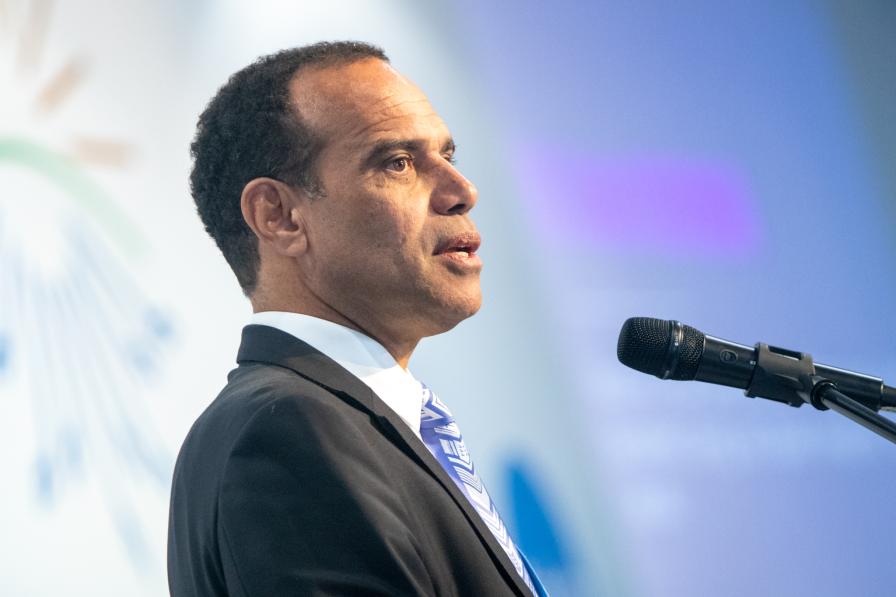
Ralph Regenvanu, Minister of Climate Change Adaptation, Meteorology and Geo-Hazards, Energy, Environment and Disaster Risk Management, Vanuatu
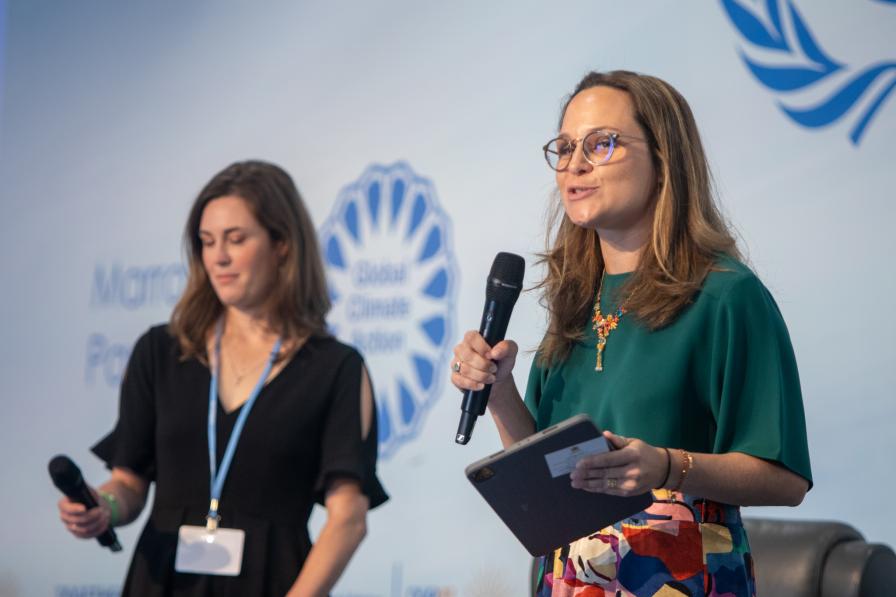
Jessie Turner, International Alliance to Combat Ocean Acidification Secretariat (OA Alliance), and Loreley Picourt, Executive Director, Ocean & Climate Platform, hosted the Ocean Action Day event
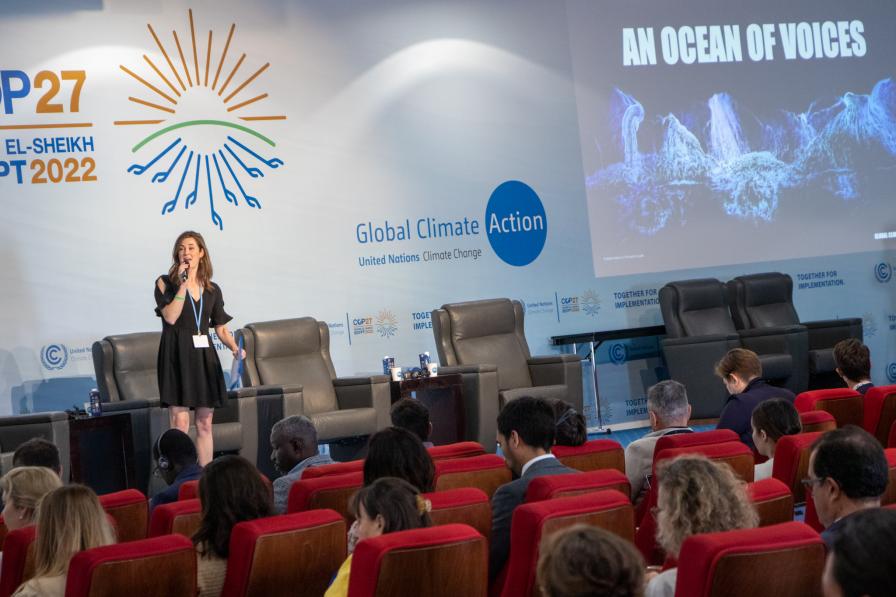
Jessie Turner, Secretariat, OA Alliance, introduces the short film One Ocean. One Planet. One Future by the Woods Hole Oceanographic Institution.
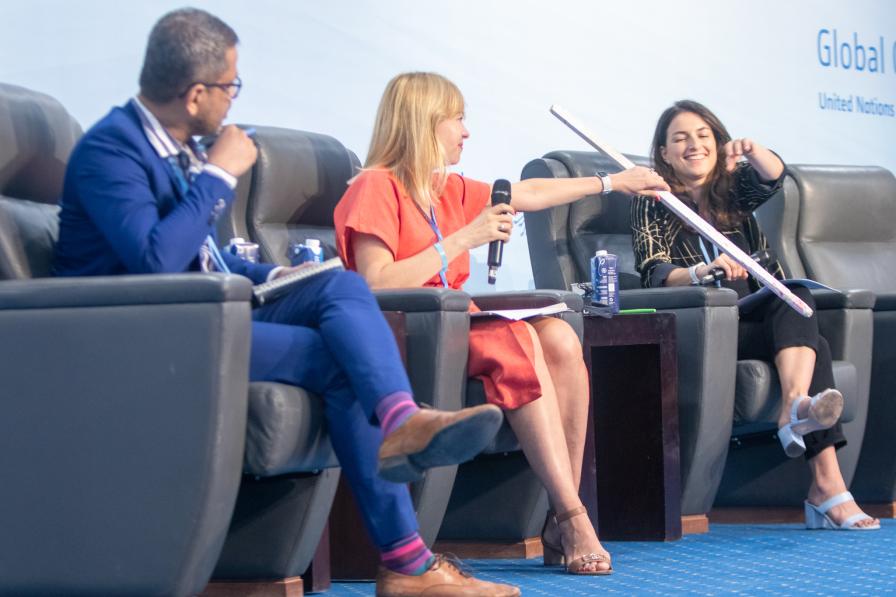
Arghya Sinha Roy, ADB, watches as Julia Manning, EBRD, gives the "magic wand" to Beatriz Granziera, The Nature Conservancy.
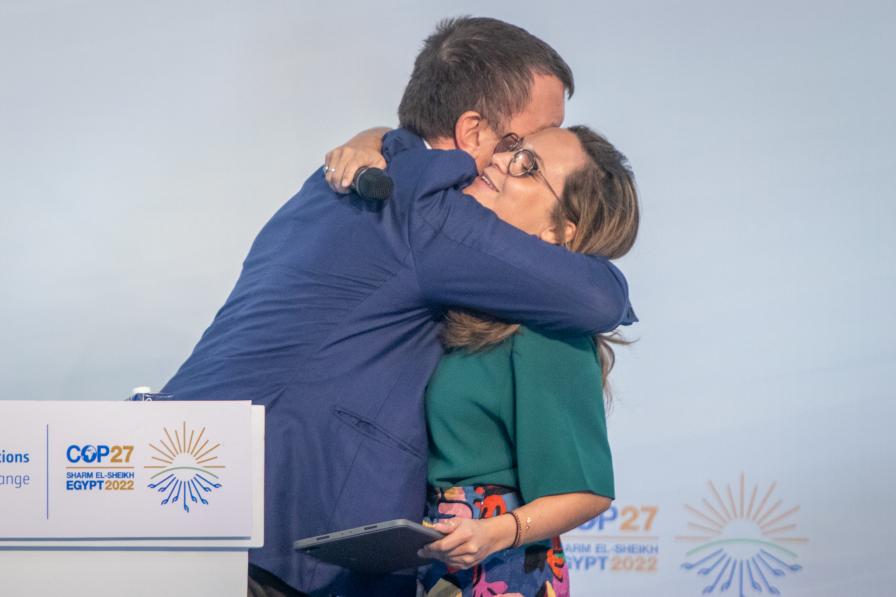
Nigel Topping, High-level Climate Champion of COP 26, and Loreley Picourt, Executive Director, Ocean & Climate Platform, embrace as the end of his tenure approaches.
